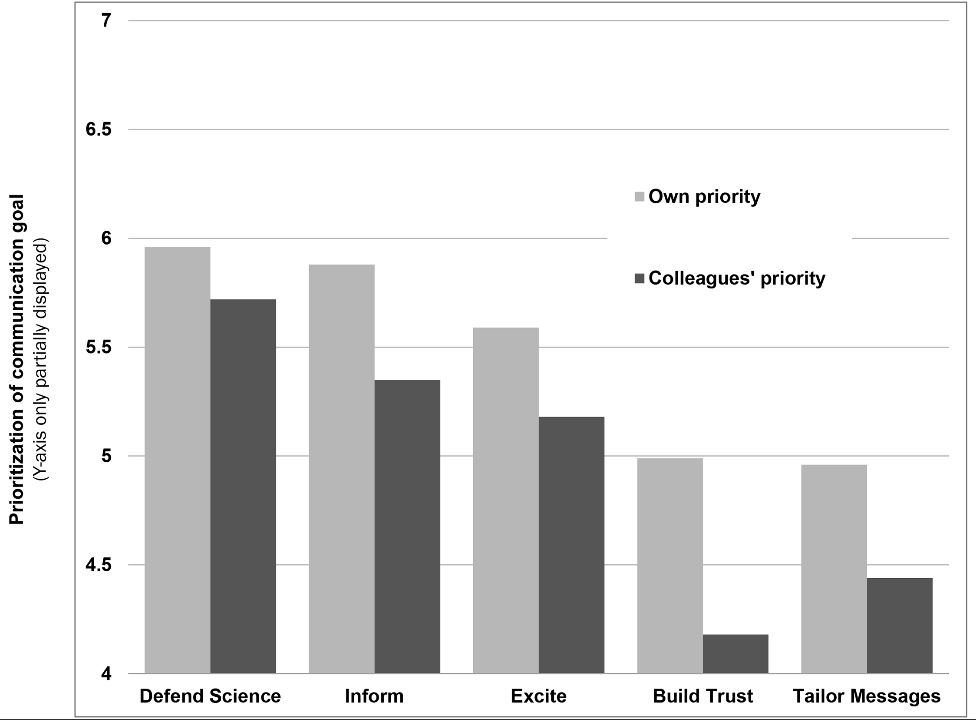Before I begin, to the general science public who visits Science 2.0 (some 300,000,000 in 12 years, so thank you for supporting independent science media!) - this article is of no value to you, unless you like "inside baseball" discussions of why people do the thing the public visits here to see them do.
A recent report by the American Academy of Arts & Sciences delves into how people find science, and a big way people find science is online. Zoos, museums, various events, those are all great (I have even had Science 2.0 appear at wine tastings, so if you want a print-out of which wine goes with which cheese according to science, here you go) but the Internet is still the place that will result in the most reach, the way television did a generation ago and newspapers before that.
That sounds great, but science communication (scicomm as the cool kids in scicomm seem to like to call it) has a problem with gaining traction against opponents of science; to journalists, the public and companies, the online science community can be fractured, combative, competitive, and prone to getting in its own way when it comes to the purported mission (educating the public) , to such an extent libertarian anarchists probably shake their heads in amazement anything gets done.
The report notes there are various reasons people get into scicomm and the top among them is to "defend science", but that may be part of the problem.

Football players don't defend football, they attract fans by playing good football. Instead of participants doing good work, people who say they are defending science come across as
Cheerleaders
There is nothing wrong with cheerleaders, but that is not why people go to the game. Scicomm should be making the plays, both the routine and the spectacular, that cause the public to do the cheering. In some cases, it makes sense there will be cheerleaders. Imagine you are a plant biologist and people at an environmental group are telling the public you are corrupt and that
one type of genetic engineering, GMO (Genetically Modified Organism), is going to ruin the world. Sure, you are going to defend your field, but if you spend all of your time defending one process, it will certainly look like cheerleading.
Climate change is another area where a number of people do outreach to defend a field, and not to inform the public.
Science doesn't need defending
Science doesn't need defending, and it comes across as hostile to defend every question like it's an attack. Science is not a corporate conspiracy, not by Exxon or Monsanto, it is not a conspiracy by Republicans or Democrats. Engaging in such demagoguery by people in scicomm looks like they went into science media because they failed at political blogging. It's best left to environmental groups.
Cheerleading for science by people paid to do that science is a mistake, the same way a marketing person at Merck defending Merck looks self serving. There are groups, like Science 2.0, that are entire platforms devoted to cheerleading science, and we even attack enemies of science. In both cases, that is not going to be the strength of most scientists.
There is also a big downside to cheerleading. Cheerleaders are for one team, and if you have been to an AFC North game between the Browns and Steelers, there is no fuzzy-wuzzy 'we are all football fans' thinking. They hate the other team. So it goes with people who think their scicomm team is the only team, and everyone else is doing science outreach wrong. They are often not very successful, so they usually create their own clique, and are distrusted by others in science media, but that is a win for people opposed to science.
Some are paid
Most activists opposed to science are paid to mobilize the public and do it quite well - they got jobs doing so because they were good at it and turned it into money. They then get promotions if they succeed better than others. Activism is all a capitalist meritocracy, that way. When I graduated college, before I shipped off to be an Army officer, I worked for Public Interest Research Group in Pennsylvania. I was shocked at how many of the urban environmentalists that worked with me that summer thought they were going to be testifying in Harrisburg about the importance of the environment. As a result, they were terrible at the actual job, raising money. I was the top at it because I knew why I was there, and I was offered a job running an office,
In science, it is the other way around. Some get a degree and then decide they might like to be writers, which can be tough at first. You don't get to be one of the guitarists in the Rolling Stones by getting a music degree and then telling them you'd like to play on stage, most often you practice 8 hours a day and then gig at night until you are better than everyone else available.
Instead of being scientists, most people in scicomm who are paid work at universities, companies or trade groups. Science media is very much a "gig" economy like Uber, few will make money at it, even fewer will make a good living.
Part of this is the problem of journalism itself.



